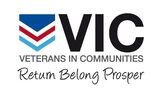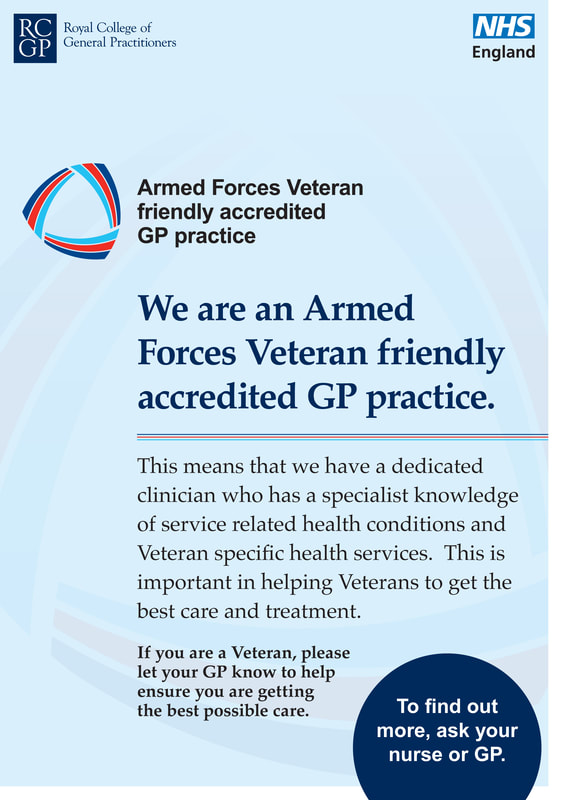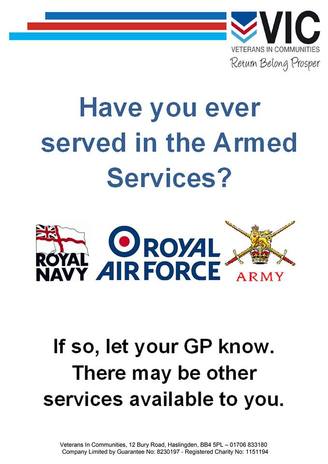Heywood, Middleton and Rochdale (HMR) Integrated Neighbourhood Team (INT)
In the summer of 2016 VIC started working alongside other agencies to deliver a £9million contract for community health and care services in Heywood, Middleton and Rochdale.
The initial three-year contract has been extended, was awarded to Pennine Acute Hospitals NHS Trust who are the lead provider working in collaboration with local partner agencies.
This is a multi-agency approach and includes a number of partner organisations.
Veterans In Communities role within the partnership is to;
Our resident Project Worker, Bev Fowler, is our representative in the INT for HMR and works closely with our outreach team in Heywood, Middleton and Rochdale. The primary role will be to identify and support serving and ex-service men and women, their families and emergency services personnel requiring help by working in partnership with the other INT organisations.
The Project Workers Role is;
The purpose of the INT is to transform the care available in relation to both health and wellbeing for local people.
In addition to working alongside the other services and organisations within the INT to help those who need or can benefit from our services by supporting them through any difficulties they are or have had when transitioning back into their communities after the leaving the Armed Forces.
Whilst they are receiving this support they are encouraged to get involved in the Peer Support activities and outreach services being run by our outreach team on the Heywood and Rochdale NHS CCG project.
Bev has worked closely with GP and Health Centre's to promote the Veteran Friendly Accredited Practices across the areas, by giving advice and support in how to become a Veteran Friendly accredited Practice. [More about Veteran Friendly Accredited Practice]
The initial three-year contract has been extended, was awarded to Pennine Acute Hospitals NHS Trust who are the lead provider working in collaboration with local partner agencies.
This is a multi-agency approach and includes a number of partner organisations.
Veterans In Communities role within the partnership is to;
- work across the 6 neighbourhoods identified by the HMR INT Partnership
- raise awareness of the issues current and ex-services personnel face as they adjust to being part of the civilian community
- identify those requiring our support and information
- provide a trusted link between ourselves and other INT services, ensuring quick and accurate referral
- to be a part of the Single Access Point, enabling information sharing and access to the services required by individuals
- support ex-services personnel to access statutory services in order to maintain health and wellbeing
- provide and support volunteering opportunities and volunteer networks
- link into MDT meetings as required and accept referrals from the MDT
- be a member of the Partnership Board
Our resident Project Worker, Bev Fowler, is our representative in the INT for HMR and works closely with our outreach team in Heywood, Middleton and Rochdale. The primary role will be to identify and support serving and ex-service men and women, their families and emergency services personnel requiring help by working in partnership with the other INT organisations.
The Project Workers Role is;
- A full-time role to lead on the project
- Provide a weekly outreach service in in venues in Heywood, Middleton and Rochdale
- To have regular information stands based in health venues in Littleborough, Alkrington and Rochdale. Times will vary to ensure maximum accessibility
- To identify veterans will be offered on-going support, which may also include home visits and to encourage them to access to all existing VIC activities.
- Raise awareness sessions to all teams within and across HMR INT
- To attend meetings and to provide up-dates at the HMR INT Partnership Board
- Attend neighbourhood townships meeting
- To work in partnership with the Integrated Care Volunteers, Integrated Case Managers, neighbourhood wellbeing champions.
- To work in partnership with other specialised veteran organisations including Royal British Legion, Combat Stress, Military Veterans Service.
- To take referrals from partner organisations and to be the Single Point of Access
- To provide seamless working across the shared boundaries between East Lancashire and HMR due to funding received from East Lancashire Clinical Commissioning Group
- To act as the link between the HMR INT and the HMR Armed Forces Community Covenant Group
The purpose of the INT is to transform the care available in relation to both health and wellbeing for local people.
In addition to working alongside the other services and organisations within the INT to help those who need or can benefit from our services by supporting them through any difficulties they are or have had when transitioning back into their communities after the leaving the Armed Forces.
Whilst they are receiving this support they are encouraged to get involved in the Peer Support activities and outreach services being run by our outreach team on the Heywood and Rochdale NHS CCG project.
Bev has worked closely with GP and Health Centre's to promote the Veteran Friendly Accredited Practices across the areas, by giving advice and support in how to become a Veteran Friendly accredited Practice. [More about Veteran Friendly Accredited Practice]
Veterans Priority Treatment
|
The Military Covenant is an agreement between the Armed Forces Community, the Government and Nation. On November 3rd 2011 The Military Covenant was enshrined in Law and put into the Armed Forces Act.
What this means to the health professional is that they need to offer ex-service personnel (Veterans) 'Priority Treatment'. In simple terms this means that if a veteran is suffering from a health condition that can be attributed to their military service then they should be given priority treatment. However to prioritise, this does not mean they would jump to the front of the queue. If people already have a clear clinical need they should be prioritised, but if those waiting have an equal clinical need then the veteran should take priority. |



